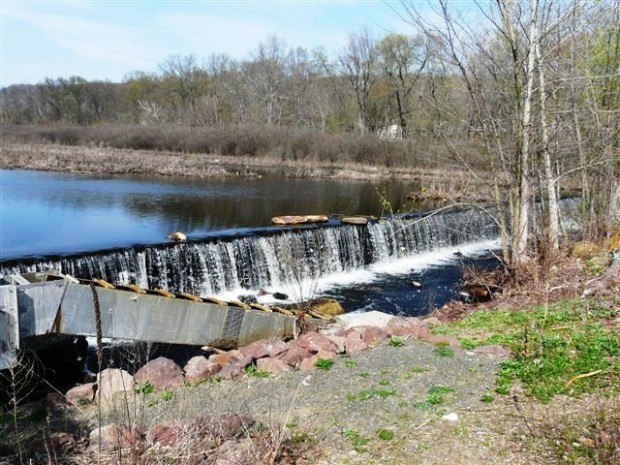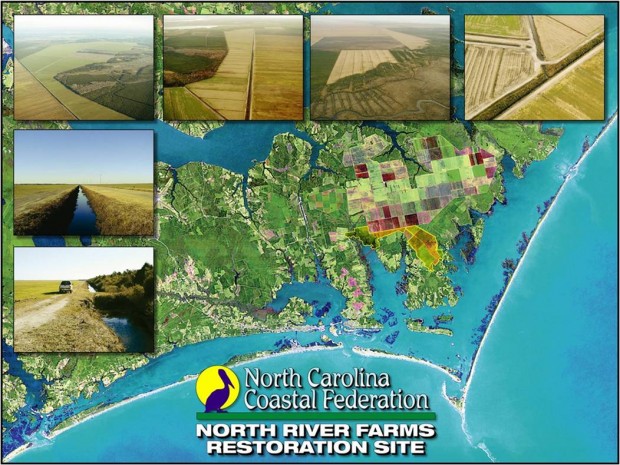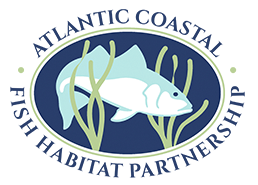The Atlantic Coastal Fish Habitat Partnership (ACFHP) recently endorsed two project proposals: Restore It and They Will Come: River Herring in the West River (Connecticut) and North River Farms Tidal Marsh Restoration, Final Phase (North Carolina). If funded, these projects would provide benefits to ACFHP priority habitat and address ACFHP protection and restoration objectives.
Restore It and They Will Come: River Herring in the West River (Connecticut)
A partnership between the Connecticut Department of Environmental Protection, the New Haven Land Trust, and the Connecticut Fund for the Environment/Save the Sound, the proposed project seeks to remove the Pond Lily Dam, restoring upstream habitat and providing benefits for river herring, as well as American eel. 
The Pond Lily Dam is a physical barrier limiting the recovery and sustainability of river herring on the West River in New Haven, Connecticut, which is in the Long Island Sound watershed. The proposed project would expand riverine migratory corridor habitat and spawning grounds for river herring – specifically, 2.6 miles of the West River and 76 acres of Konold’s Pond – helping to restore their numbers in Long Island Sound and the Atlantic. Removing the dam will also increase velocities in the historic impoundment and decrease water temperature, thereby increasing oxygen levels. It will restore the river to a more natural condition, improve upstream water quality, and enhance the riparian habitat.
Text and photo provided by the Connecticut Fund for the Environment/Save the Sound. Photo: Pond Lily Dam.
North River Farms Tidal Marsh Restoration (North Carolina)
A diverse partnership between the Natural Resources Conservation Service, the North Carolina Department of Natural Resources, the North Carolina Coastal Federation, North Carolina State University, Duke University, and a local hunting club, the proposed project seeks to create seven acres of salt marsh and 2,500 feet of tidal creek in Carteret County, North Carolina. 
The proposed work is part of a larger restoration project, which involves removing farm land from cultivation and placing it under perpetual conservation easement, and restoring hydrology and habitat. Removing the area from farming will rehydrate the soils and connect the tidal creek and marsh to the original shorelines of Williston Creek and North River. Restoring the hydrology on the farm removes the main source of bacterial contamination, nutrients and sedimentation from historically rich shellfishing beds and creates vital estuarine habitat. The proposed habitat restoration would improve water quality in Williston Creek and the North River by eliminating agricultural drainage into the waters and treating a portion of the agricultural drainage from an adjoining farm.
Text and photo provided by the NC Coastal Federation. Image: North River Farms Restoration Site.
